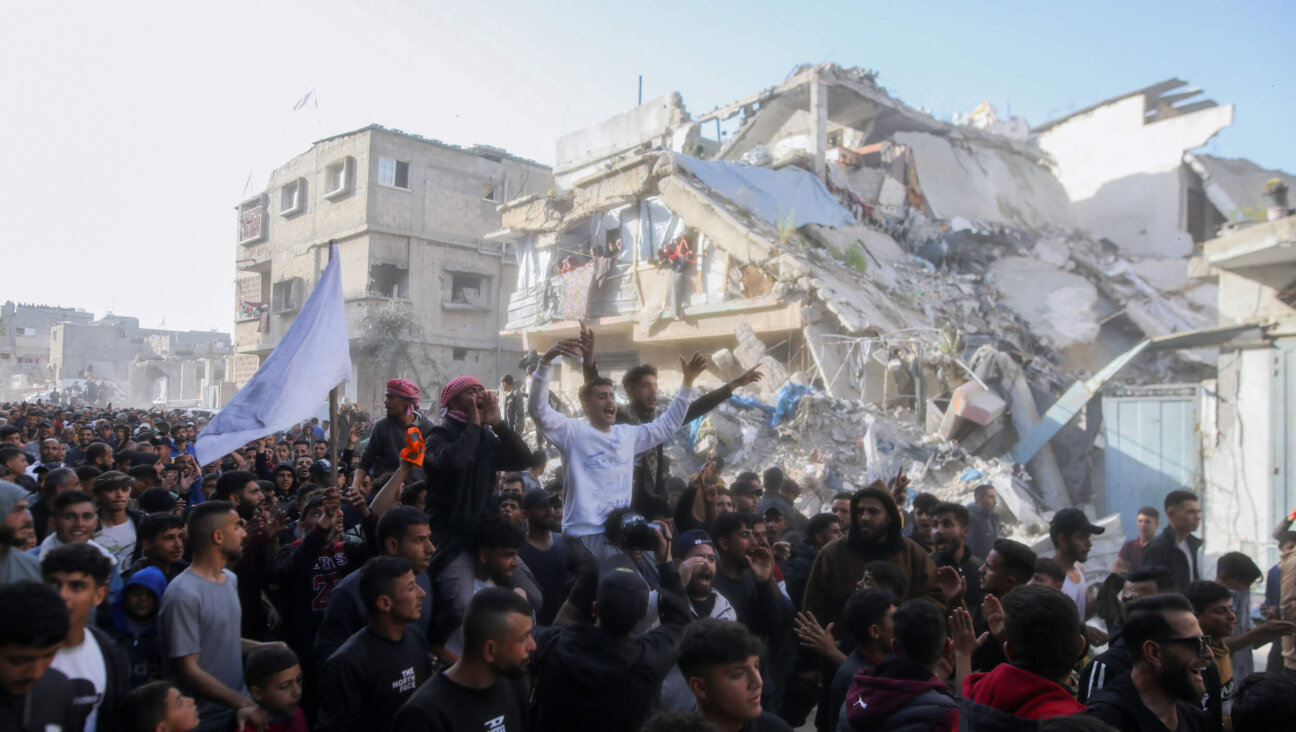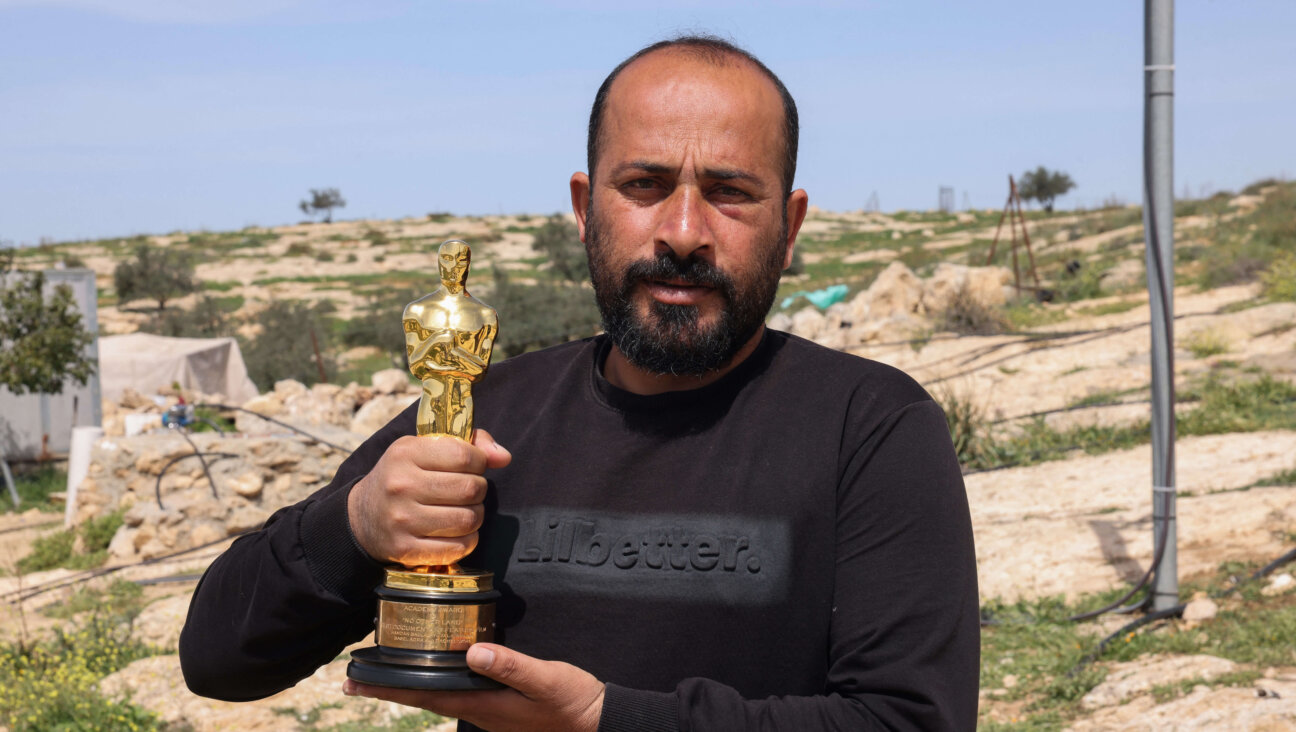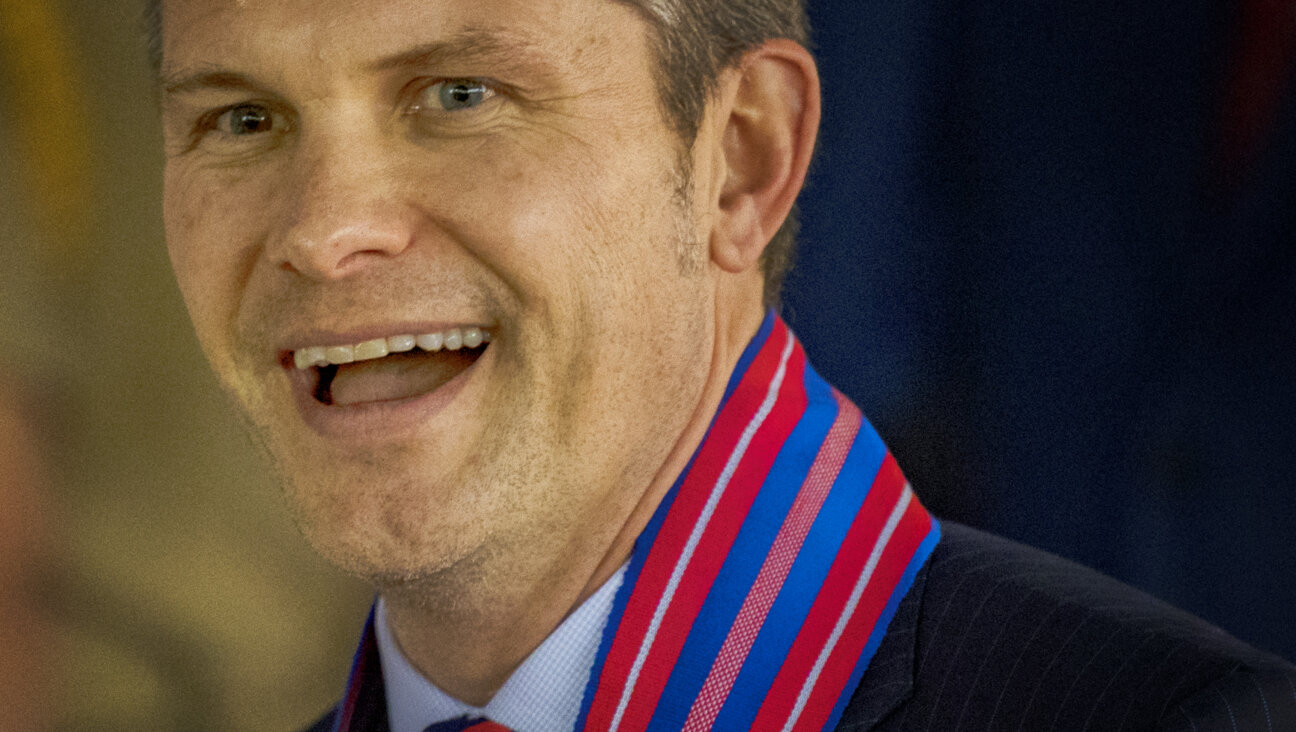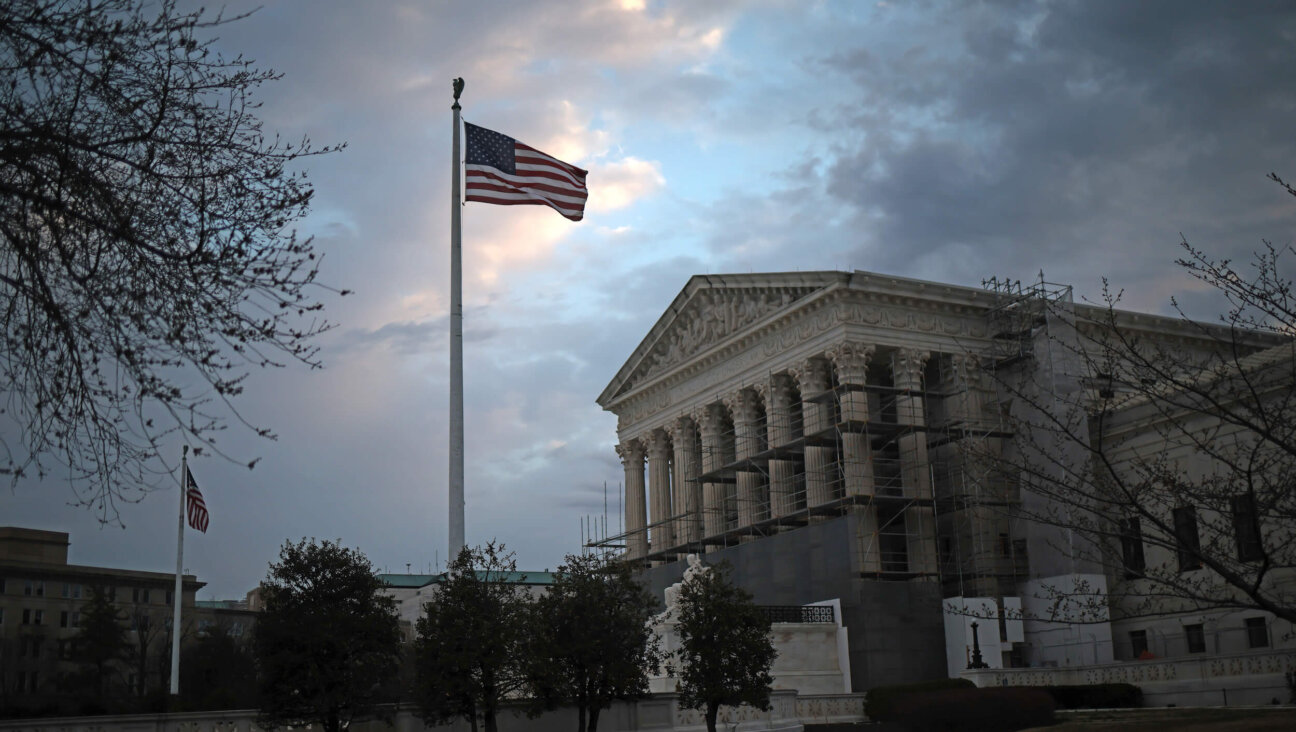Challenging Each Other, In Good Faith

The Power of Talk: Members of the dialogue group. Image by Courtesy of Letty Cottin Pogrebin
I was born and raised in New York City, yet when I arrive at Ben Gurion airport I don’t feel protected by my American passport.
My heart pounds with anxiety and I feel literally sick to my stomach at the possibility of being interrogated and humiliated. The reason: My father was Palestinian. My Jewish colleagues are sympathetic, but they can’t relate viscerally to what I am subjected to as I enter and exit Israel.
So, why do I participate in this Dialogue? My Arab friends ask, “Will this group of yours end the occupation?” No, it won’t, and some days when a meeting is scheduled, I don’t feel like going. But I go because I believe it is my responsibility to make Palestine and Palestinian views, politics, and culture accessible to all who want to listen.
Sometimes I educate them; sometimes I learn from them. I remember one session that included a “show and tell.” Each of us was supposed to bring an object that symbolized our connection to Israel/Palestine. One of the Jewish women brought in a Jewish National Fund collection can from her childhood home, a blue and white tin she called a “tzedakah box.” She told us that she and her family put coins in the box every week no matter what. “We did without, but money went into that box,” she said.
I was awed by that level of commitment and later mentioned it to some of my Palestinian friends and they concurred that we, too, needed to have collection boxes of our own.
Because I lived in Ramallah for a few years, I’m able to bring to the group some critical insights about life in a “five-star prison” with limited to no freedom of movement. To reach my father’s village, normally a 15-minute drive from Ramallah, we had to circumvent all the special roads that Israel built — mostly on confiscated Palestinian land — for settlers’ use only. Now the trip takes an hour and a half. Thankfully, my father’s village, unlike many, is not (yet) obstructed by a high concrete wall with a gate controlled by Israelis who decide whether and when to let schoolchildren and villagers pass in and out.
But today, as I ready myself for a trip to the region to help with the olive harvest, I’m angered by the news that Jewish settlers are poisoning Palestinian olive trees and preventing villagers from accessing their land. I know for certain that my Jewish Dialogue colleagues all agree that these actions are despicable and unacceptable. They understand the Palestinians’ connection to their land and their olive groves.
Nevertheless, there have been times when I was disappointed by the lack of reaction or empathy from our Jewish counterparts. During the Gaza war, my Palestinian sisters and I were all distraught — we expected some kind of outreach from them, and there was none. Occasionally, I’ve found Jewish ignorance of Palestinians quite shocking.
Such frustrations aside, what makes this Dialogue work is that for two-and-a-half years, we have listened to one another respectfully and challenged each other in good faith. This is what happens on a daily basis in Israel in a place special to me: Neve Shalom/Wahat al-Salam, the cooperative village where Palestinian Israelis and Jewish Israelis coexist on a daily basis. Once a month, here in New York City, we in our small group, are trying to do the same.
Jeanine Shama is affiliated with various Arab-American organizations and was formerly with the Arab-American Anti-Discrimination Committee.
The Forward is free to read, but it isn’t free to produce

I hope you appreciated this article. Before you go, I’d like to ask you to please support the Forward.
At a time when other newsrooms are closing or cutting back, the Forward has removed its paywall and invested additional resources to report on the ground from Israel and around the U.S. on the impact of the war, rising antisemitism and polarized discourse.
Readers like you make it all possible. We’ve started our Passover Fundraising Drive, and we need 1,800 readers like you to step up to support the Forward by April 21. Members of the Forward board are even matching the first 1,000 gifts, up to $70,000.
This is a great time to support independent Jewish journalism, because every dollar goes twice as far.
— Rachel Fishman Feddersen, Publisher and CEO
2X match on all Passover gifts!
Most Popular
- 1

Film & TV What Gal Gadot has said about the Israeli-Palestinian conflict
- 2

News A Jewish Republican and Muslim Democrat are suddenly in a tight race for a special seat in Congress
- 3

Fast Forward The NCAA men’s Final Four has 3 Jewish coaches
- 4

Culture How two Jewish names — Kohen and Mira — are dividing red and blue states
In Case You Missed It
-
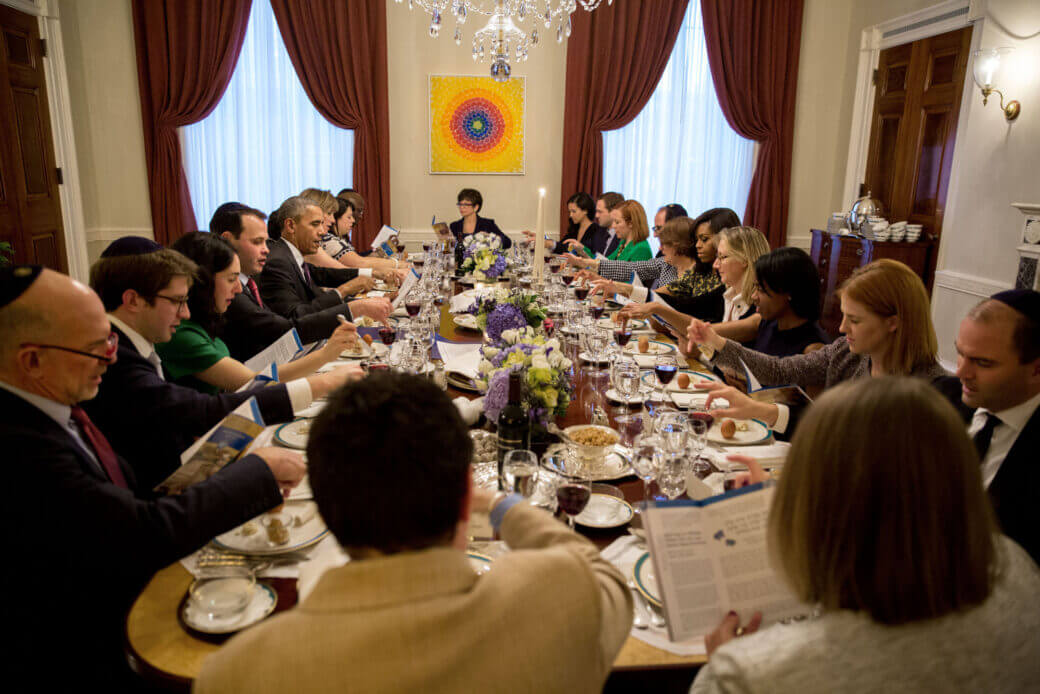
Books The White House Seder started in a Pennsylvania basement. Its legacy lives on.
-

Fast Forward The NCAA men’s Final Four has 3 Jewish coaches
-
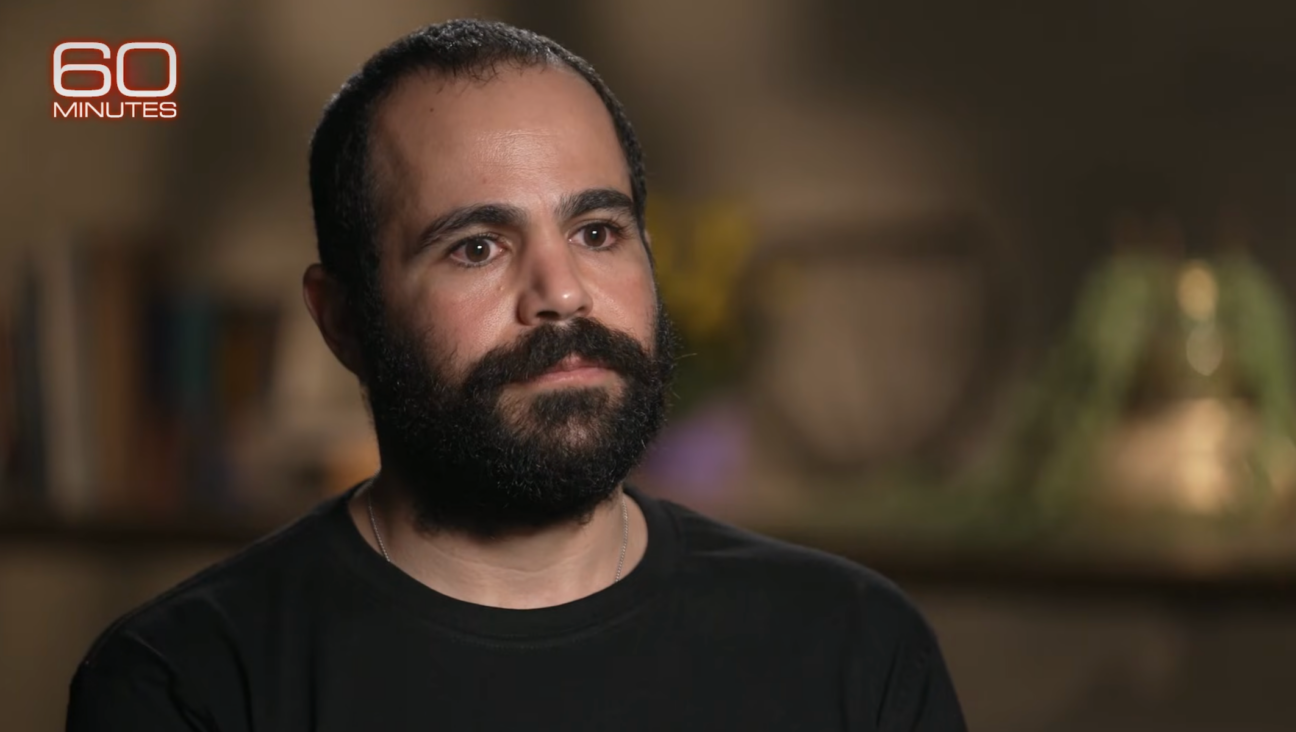
Fast Forward Yarden Bibas says ‘I am here because of Trump’ and pleads with him to stop the Gaza war
-
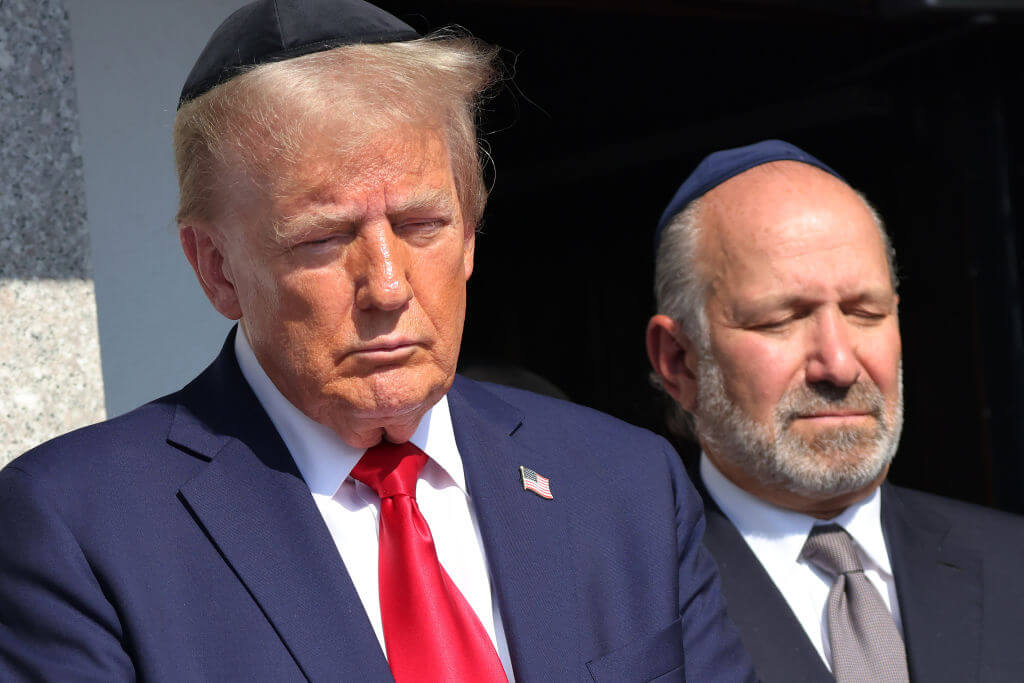
Fast Forward Trump’s plan to enlist Elon Musk began at Lubavitcher Rebbe’s grave
-
Shop the Forward Store
100% of profits support our journalism
Republish This Story
Please read before republishing
We’re happy to make this story available to republish for free, unless it originated with JTA, Haaretz or another publication (as indicated on the article) and as long as you follow our guidelines.
You must comply with the following:
- Credit the Forward
- Retain our pixel
- Preserve our canonical link in Google search
- Add a noindex tag in Google search
See our full guidelines for more information, and this guide for detail about canonical URLs.
To republish, copy the HTML by clicking on the yellow button to the right; it includes our tracking pixel, all paragraph styles and hyperlinks, the author byline and credit to the Forward. It does not include images; to avoid copyright violations, you must add them manually, following our guidelines. Please email us at [email protected], subject line “republish,” with any questions or to let us know what stories you’re picking up.







